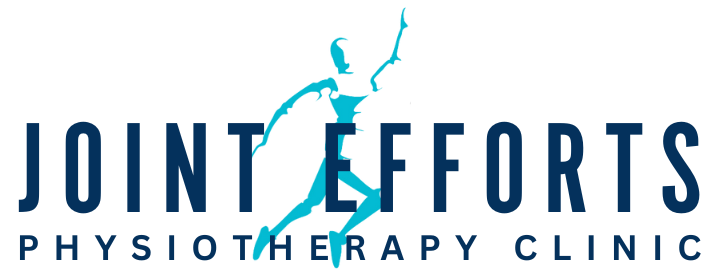This guide explores 5 signs that indicate it’s time to seek the expertise of a physiotherapist. Recognizing these signs early can prevent further complications, ensure proper healing, and help you return to your daily activities with confidence. When it comes to enhancing your physical health, both physiotherapists and personal trainers play pivotal roles. However, discerning when to consult a physiotherapist instead of a personal trainer is crucial for effective recovery and optimal performance. Whether you’re dealing with persistent pain, limited mobility, or recovering from an injury, understanding the appropriate professional to consult is key to your health journey.
1. Persistent or Recurring Pain
Experiencing ongoing discomfort, such as back pain or knee pain, that doesn’t subside with rest or standard exercise routines, may indicate underlying issues beyond typical muscle soreness. While gym workouts can be beneficial, lifting heavy weights without proper form can lead to pain stemming from poor posture rather than the exercise itself.
Unlike general discomfort from a workout, persistent pain can signal underlying issues such as:
- Muscle strains or ligament sprains
-
Joint dysfunctions
-
Nerve impingements
-
Disrupts Sleeps
- Pain Accompanied by Fatigue or Mood Changes
In such cases, consulting a physiotherapist is more appropriate than relying solely on a gym trainer for addressing these signs. Conditions like sciatica or frozen shoulder often require targeted interventions. Seeking assistance from the best physiotherapy for pain management can provide relief and prevent further complications. A physiotherapist is trained to assess, diagnose, and treat these conditions through targeted interventions, ensuring a safe return to activity.
2. Limited Range of Motion or Stiffness
Experiencing difficulty in movements, can manifest in various forms, often signaling underlying neurological or muscular issues. Here are some common types: Muscle Stiffness or Rigidity, Tremors, Ataxia along with facing difficulties in turning your neck or bending your knees, is often attributed to a sedentary lifestyle. Recognizing these movement difficulties signs are crucial for early diagnosis and intervention.
In response, many individuals consider these signs might be recurring due to sedentary life-style leads to initiating gym workouts for enhancing flexibility and strength. However, without proper guidance, this approach can sometimes exacerbate the issue. If you notice a decrease in your flexibility or joint mobility, it could be due to following reasons :
-
Scar tissue formation
-
Muscle imbalances
-
Postural abnormalities
Engaging in exercises without addressing underlying stiffness may lead to further discomfort or injury. In such cases, specialized treatments like physiotherapy for cervical pain or knee pain physiotherapy are more appropriate. These therapies focus on restoring flexibility and function through targeted interventions, ensuring a safer and more effective path to improved mobility. An experienced physiotherapist easily understands these signs, can design a personalized rehabilitation program that includes manual therapy, stretching, and strengthening exercises to restore your range of motion and prevent further complications.
3. Recovery from Surgery or Injury
Recovering from surgery or injury requires more than just resuming regular workouts. Jumping into standard exercise routines without professional guidance can hinder healing and potentially cause further harm. Personalized physiotherapy—such as home-based care for knee replacements or frozen shoulder—offers targeted rehabilitation to restore function, reduce pain, and ensure a safe return to daily activities. Individuals recovering from surgery or injury require specialized care to ensure proper healing and prevent re-injury.
Physiotherapists provide:
-
Post-operative rehabilitation
-
Scar tissue management
-
Strengthening and functional training
Over- looking signs indicating by the body may hindered the internal healing process also affects the physiotherapist works.Their expertise is essential in guiding you through a safe and effective recovery process. These programs focus on restoring function, reducing pain, and ensuring a safe return to daily activities, providing the specialized care that general training cannot offer.
4. Age-Related Physical Decline
As individuals age, signs such as stiffness, reduced mobility, and balance issues often arise—not merely due to aging but from factors like muscle weakness and joint degeneration. Engaging in general exercise routines without proper guidance may inadvertently lead to strain or injury.
Chronic conditions like arthritis, fibromyalgia, or chronic back pain can significantly impact daily life. A physiotherapist can:
-
Educate on pain management techniques
-
Develop individualized exercise programs
-
Provide ergonomic advice
Their holistic approach aims to enhance quality of life and maintain independence. Tailored in-home physiotherapy programs address these challenges, enhancing strength, balance, and coordination, thereby reducing fall risks and promoting independence.
5. Specialized Needs Requiring Expert Care
Certain health conditions necessitate tailored physiotherapy approaches to ensure optimal recovery. For instance, sports injury physiotherapy addresses specific athletic injuries, facilitating a safe return to activity. Similarly, postnatal physiotherapy supports new mothers in regaining strength and addressing postpartum physical challenges.
Signs like numbness, tingling, dizziness, or balance issues may indicate neurological conditions such as:
-
Cervical or lumbar radiculopathy
-
Multiple sclerosis
-
Parkinson’s disease
Physiotherapists with specialized training in these conditions develop a treatment plan to improve coordination, balance, and overall function and offers personalized rehabilitation plans within the comfort of one’s home. This approach not only enhances physical recovery but also addresses emotional and psychological well-being, providing a holistic path to regaining independence and improving quality of life.
Conclusion
Recognizing these 5 signs is the first step toward effective treatment. At Joint Efforts, we offer comprehensive services, from our physiotherapy clinic in Noida to personalized home visits. Our team includes the best physiotherapist in providing affordable physiotherapy tailored to your needs. Whether you’re searching for physiotherapy services for home visits, or require a female physiotherapist for home visit, we’re here to assist. For in-person consultations or at-home services, visit our Joint Efforts Physiotherapy Centre. For consultations, we’re just a call away!


